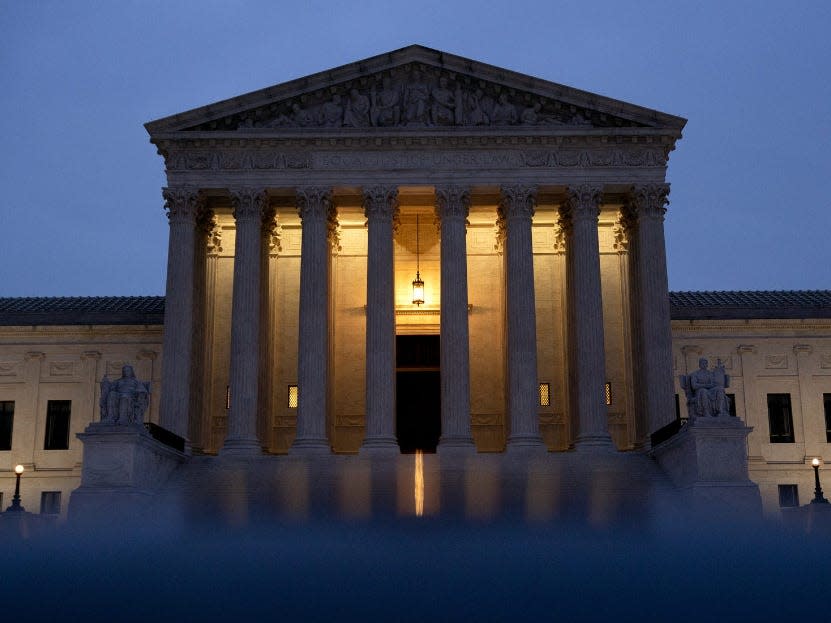Biden's Plan to Overhaul the Supreme Court is 'Dead on Arrival'
In a bold move aimed at reforming the highest court in the land, President Joe Biden has unveiled a proposal that seeks to implement significant changes to the Supreme Court. However, the plan has already faced staunch opposition, with House Speaker Mike Johnson declaring it "dead on arrival." This article delves into the key components of Biden's proposal, the political landscape surrounding it, and the challenges it faces in Congress.
Key Components of Biden's Proposal
Biden's plan, announced in a recent White House press release, outlines three major reforms:
-
18-Year Term Limits for Justices: The proposal suggests that justices should serve for a fixed term of 18 years, with a new justice appointed every two years. This change aims to ensure a more regular turnover in the court's composition, reducing the potential for any single presidency to dominate the court for generations.
-
Binding Code of Conduct: Biden advocates for a binding code of conduct for justices, which would require them to disclose gifts, avoid public political activities, and recuse themselves from cases where they or their spouses have conflicts of interest. The current voluntary ethics code has been criticized for its lack of enforceability.
-
Amendment on Presidential Immunity: The proposal includes a constitutional amendment stating that no former president can claim immunity from federal criminal prosecution. This move is particularly relevant in light of ongoing legal challenges faced by former President Donald Trump.
Political Opposition
Despite the rationale behind Biden's proposals, they have been met with immediate resistance from Republican leaders. House Speaker Mike Johnson has expressed strong disapproval, arguing that the changes would undermine the rule of law and erode public trust in the judicial system. He contends that Democrats are attempting to alter the foundational principles of the Supreme Court simply because they disagree with its recent rulings.
Johnson's comments reflect a broader sentiment among Republicans, who have largely supported the conservative majority on the court. The GOP's control of the House presents a significant hurdle for Biden's proposals, as any legislative changes would require bipartisan support.
Challenges in Amending the Constitution
One of the most ambitious aspects of Biden's plan is the proposed amendment regarding presidential immunity. Amending the Constitution is a complex process that requires either two-thirds support from both the House and Senate or a convention called by two-thirds of state legislatures. Given the current political climate, achieving such consensus appears unlikely.
Furthermore, even if the amendment were to pass through Congress, it would need ratification from three-fourths of state legislatures, a daunting task with many states under Republican control.
The Road Ahead
While Biden's proposals have garnered some support within the Democratic Party, including backing from Vice President Kamala Harris, the path to implementation remains fraught with obstacles. The Republican-controlled House is unlikely to entertain such sweeping reforms, and the prospect of a filibuster in the Senate further complicates matters.
As the Biden administration navigates this contentious issue, it is clear that the proposed overhaul of the Supreme Court will be a focal point in the upcoming political discourse. With the 2024 elections on the horizon, Democrats may leverage this proposal as a key contrast to the Trump administration's legacy, even if the likelihood of its passage remains slim.
In conclusion, while President Biden's plan to reform the Supreme Court addresses pressing concerns about ethics and accountability, the political realities of a divided Congress make its future uncertain. As the debate unfolds, the implications for the judiciary and the broader political landscape will be closely watched.
